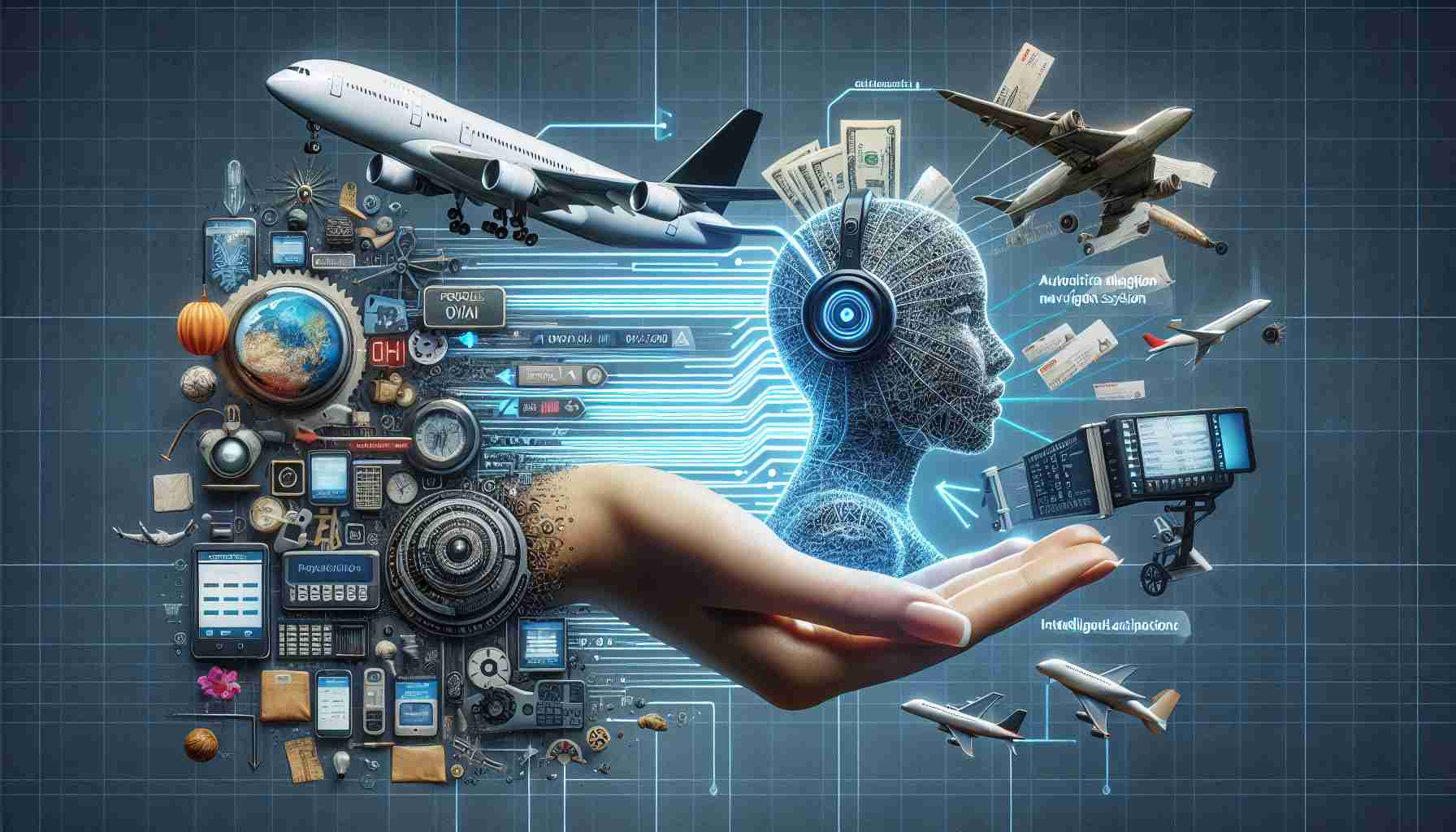- Artificial intelligence (AI) is revolutionizing the travel industry, reshaping how travelers engage with technology.
- China’s DeepSeek and the U.S.-based OpenAI are advancing AI models for travel, increasing competition and innovation.
- AI can identify travelers’ hidden desires and recommend unique destinations, potentially reducing overcrowding at popular sites.
- Platforms like Booking.com utilize AI to personalize travel experiences, offering an opportunity to discover new places.
- The travel industry faces a pivotal transformation as AI enhances the distribution and planning of travel experiences.
- Partnerships between online travel agencies and AI firms are integral to embracing the full potential of technology-driven journeys.
- Leveraging AI can personalize travel, ensuring unique and intimate adventures in a digital landscape.
Lines blur and the world shrinks as artificial intelligence tightens its embrace on the travel industry, reshaping our journeys in ways once consigned to science fiction. Travelers from every corner of the globe now interact daily with AI, although this often goes unnoticed, like a quiet but persistent whisper in the background of modern life.
In particular, China’s tech giant DeepSeek recently unveiled a new model, raising the stakes in the AI game. Meanwhile, across the Pacific, OpenAI captures attention with an AI agent now adept at booking vacations, promising thrilling collaborations with online travel agencies.
Traditionally, digital travel searches clustered tourists at renowned destinations, leading to bustling crowds and overrun landmarks. However, experts suggest AI holds a unique advantage: its capacity to discern hidden desires from nuanced contexts, an ability leveraged by notable platforms like Booking.com. This offers the promise of unlocking a treasure trove of undiscovered destinations, reshaping how we experience the world.
Industries either adapt or fade amidst the relentless march of technological advances. The travel sector finds itself at a crossroads, facing profound transformations as AI revolutionizes the entire distribution landscape. Visionary collaboration between global online travel agencies and trailblazing AI firms hints at a future that is not only inevitable but also brimming with potential.
The message is clear: embrace AI as an ally on your journey. Harness its power to craft bespoke experiences and unearth hidden gems, ensuring that the adventure remains intimate and personal even in a digital age.
Unlocking the Future of Travel: How AI is Transforming the Industry
How-To Steps & Life Hacks
AI-powered solutions offer numerous ways to enhance travel experiences. Here’s how you can leverage AI technologies for your next trip:
1. Personalized Recommendations: Use AI tools like Google Travel or TripAdvisor for tailored travel plans based on your preferences and past behavior.
2. Intelligent Itinerary Planning: Utilize apps like Inspirock, which use AI to create efficient travel itineraries considering location, travel time, and duration of activities.
3. Language Translation Apps: Apps such as Google Translate can instantly translate text and speech in numerous languages, easing communication barriers.
4. Augmented Reality (AR) Navigation: Applications like Google Maps AR provide real-time navigation with virtual markers overlaid on the physical streetscape.
Real-World Use Cases
AI systems are currently employed to enhance various facets of travel:
– Custom Travel Experiences: Companies like Booking.com use AI to analyze user behavior and suggest personalized experiences and hidden gems to explore.
– Dynamic Pricing Models: Airlines and hotels use AI algorithms to adjust prices based on demand fluctuations, ensuring competitive pricing while maximizing revenue.
– Chatbots for Customer Service: AI-powered chatbots provide 24/7 customer support in multiple languages, resolving queries and issues faster than traditional call centers.
Market Forecasts & Industry Trends
The AI in travel market is projected to grow significantly:
– Growth Projections: According to Allied Market Research, the AI in Travel and Hospitality Market is expected to reach $1.2 billion by 2024, expanding at a CAGR of 9% during the forecast period.
– Trend Shifts: There is a growing trend towards travel as a service rather than a transaction. Companies are focusing on experiential travel and user-centric service models.
Reviews & Comparisons
– AI-Driven Platforms: OpenAI’s vacation booking system is compared favorably against traditional platforms for its ability to suggest lesser-known locations tailored to user interests.
– DeepSeek vs. Competitors: DeepSeek’s latest model outperforms many competitors with its advanced capabilities in contextual understanding, although OpenAI still holds an edge in vacation planning integration.
Controversies & Limitations
While AI transforms travel, it also brings challenges:
– Privacy Concerns: Data privacy is a major concern as AI relies on user data to personalize experiences, leading to potential misuse or security breaches.
– Over-Reliance on Technology: There’s a risk of dependency on AI-driven suggestions, potentially limiting spontaneous exploration during travel.
Features, Specs & Pricing
– Booking Platforms: Features include predictive analytics, real-time itinerary adjustments, and dynamic recommendations.
– Pricing: AI services are often bundled into existing travel platforms at no additional cost, but premium subscriptions may offer enhanced features.
Security & Sustainability
– Data Security: Companies invest substantially in cybersecurity measures to protect user data from breaches.
– Sustainability: AI helps promote sustainable tourism by nudging travelers towards less crowded destinations and supporting local economies.
Pros & Cons Overview
– Pros: Enhanced personalization, efficient planning, seamless communication.
– Cons: Potential invasion of privacy, technology over-reliance, algorithm bias.
Insights & Predictions
Future trends indicate AI will continue reshaping travel:
– Increased Collaboration: More partnerships between AI developers and travel agencies are expected to enhance service offerings.
– Autonomous Travel: Autonomous vehicles and drones may soon handle transportation and delivery services, further integrating AI into travel.
Actionable Recommendations
1. Embrace Technology: Familiarize yourself with AI tools for a smoother, more personalized travel experience.
2. Stay Informed: Keep abreast of changes in AI travel technologies, as these can directly impact how you plan and book trips.
3. Prioritize Privacy: Understand and manage privacy settings on travel apps to protect your personal data.
For more information, visit Booking.com or OpenAI.
By harnessing the potential of AI in travel, you can turn every journey into a unique adventure tailored to your tastes and preferences.









